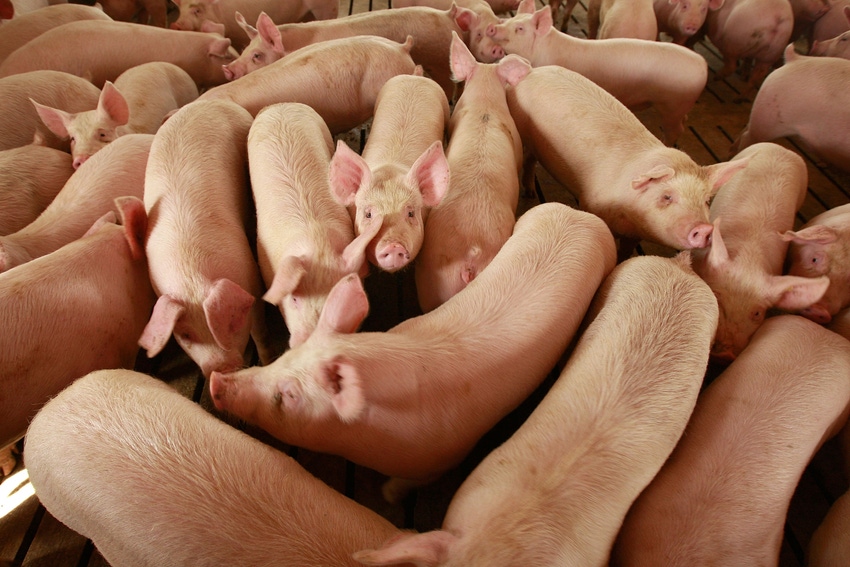China pork producers hit pause on expansion plans
Supply glut and low prices cause companies to think twice.
April 20, 2018

A supply glut caused hog prices in China to fall to an eight-year low last month, leading some pork producers in the country to alter expansion plans or put projects on hold, according to a Reuters report.
Two medium-sized companies told Reuters they have either reduced expansion plans or are holding off on future expansion. An industry analyst also said some small farmers have begun liquidating sows.
Reuters said the moves are the latest sign that years of hog production expansion in China have been overdone, leading to output that is well beyond stagnating domestic demand.
“Demand is not keeping up with the pace of production growth,” Pan Chenjun, senior analyst at Rabobank, told the news outlet.
Since China is the world’s largest producer and consumer of pork, Reuters said the domestic oversupply also is having repercussions on the global market as pork production worldwide continues to rise.
For the U.S., this means decreased demand; combined with China's newly imposed tariffs on imports of U.S. pork, the U.S. will face the challenge of finding a different buyer for product during a time when U.S. hog numbers are record high.
According to Reuters, Chinese hog prices are currently around 10 yuan ($1.59) per kilogram in major production provinces, where expansion has been fastest. Feed prices have also been high amid tighter domestic corn supplies and strong soybean meal prices. As such, prices will likely remain low.
“With farmers now losing as much as 190 yuan per pig by the time it is slaughtered, Beijing (China) this month called for more ‘rational’ production as the situation hit a ‘warning zone’,” Reuters reported.
Yin Pingan, chairman of Chongqing Riquan Animal Husbandry Co. Ltd., told the news outlet that he plans to complete five new breeding operations that already are under construction. However, plans to add another 60,000 sows next year are on hold until he sees how the market develops. “Those (farms) we haven’t started we’ll slow down. We’ll watch the situation before deciding whether to build or not,” he told Reuters.
Despite the losses, the largest farms in the country have said their expansion plans will move forward.
“Large companies know they will make losses this year and next year, but when the market is down, it’s a good time to expand,” Pan told Reuters.
You May Also Like


.png?width=300&auto=webp&quality=80&disable=upscale)
